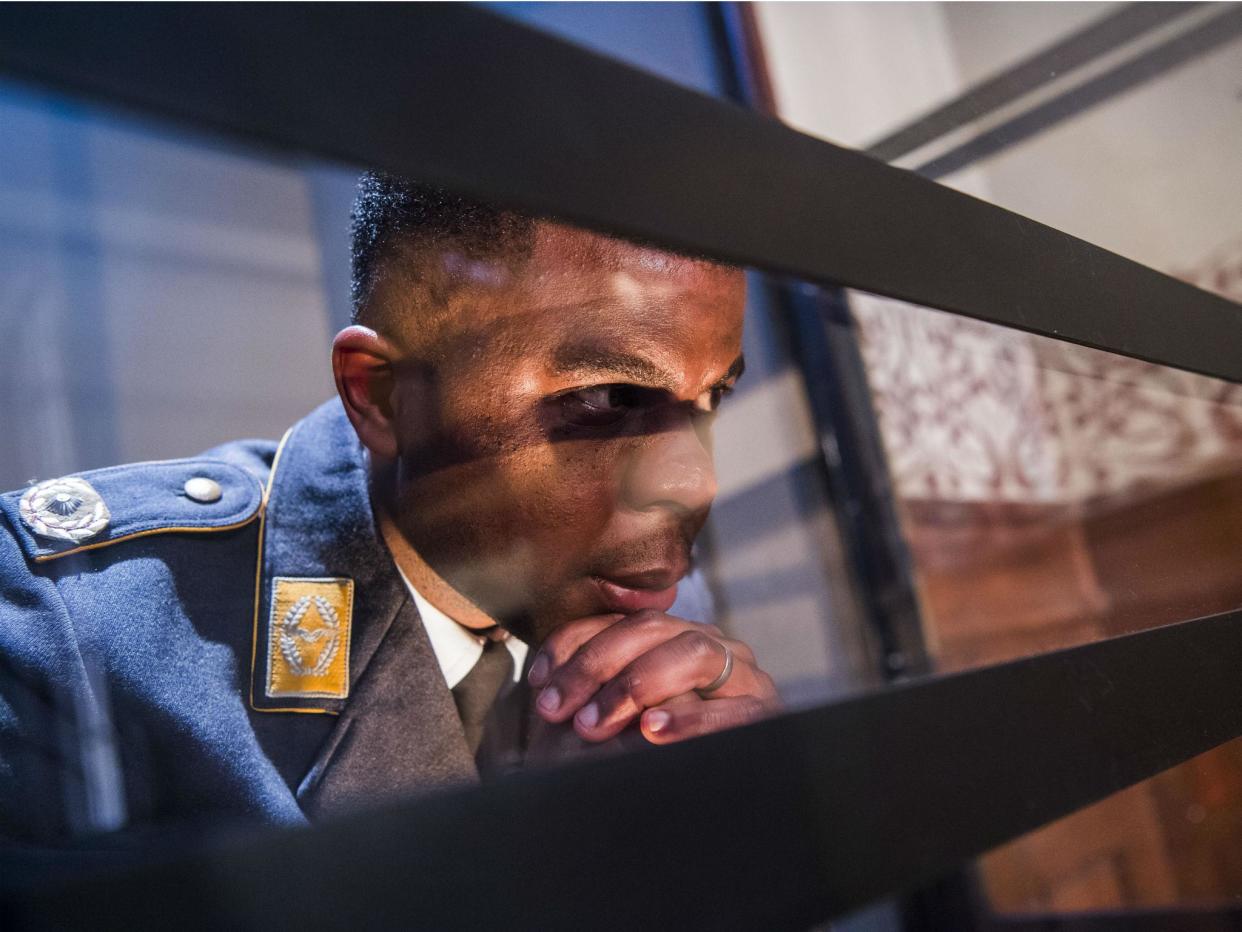Terror, Lyric Hammersmith, London, review: Often feels more akin to a moral philosophy seminar

Against the orders of his superiors, a highly trained fighter pilot shoots down a hijacked aircraft, killing all 164 passengers on board but preventing it from crashing into the football stadium to which it had been diverted by the terrorists. Is he guilty of multiple murder or a hero for probably saving the lives of the 70,000 spectators?
The audience plays the jury at his trial in this compelling and all-too-timely courtroom drama by the lawyer and writer, Ferdinand von Schirach, which was first staged in Germany in 2015 and has since been seen round the world. Sean Holmes directs the English premiere in a production that is true, almost to the point of flatness, to the play's fastidious refusal to sensationalise the material. Instead of theatrical flourishes, what we are given often feels more akin to a moral philosophy seminar.
Played by the very realistic, unshowily obdurate Emma Fielding, the State Prosecutor takes the Federal Constitution's Kantian view that “human dignity is inviolable” which signifies that a human being may never be turned into “a mere object of action” by the state. People are ends in themselves not the means to an end. Therefore the state may never weigh one life against another nor attempt a utilitarian justification for the killing of innocent lives. She cleverly exposes how his superiors assumed that the defendant would act against their orders and shoot the plane down by asking why nothing was done to evacuate the stadium in the 53 minutes available. And then she proceeds to try to demolish this culture of non-compliance by sometimes shaky textbook examples of utilitarianism at its most absurd and by alluding to the black box evidence that the passengers may have been in the process of trying to overpower the terrorists when they were obliterated.
Are principles what distinguish us from terrorists? Or, applied inflexibly, are they what leave us further exposed to terrorism's monstrosities? Forbes Masson's robust defence counsel contends that if the law did not allow for people, acting in full conscience, to choose the “lesser evil”, but insisted on purity of principle before lives, then it would be signal of surrender to our enemies. He also points out that the Federal Constitutional Court did not rule on whether a soldier would be criminally liable for shooting down a plane. Clearly translated by David Tushingham, the play marshals forceful arguments on both sides of the divide and lets us hear testimony from the grieving widow of one of the passengers and from the commanding officer. The performances are all admirably understated, with Tanya Moodie as the presiding judge and Ashley Zhangazha as the defendant, Lars Koch.
Audience members register their electronic votes after a 15 minute recess. The play's website reveals that, apart from in Japan, the voting record has been remarkably consistent in a 60:40 split towards “not guilty” among the jurors at each performance. After watching this scrupulous but rather desiccated piece, coming to decision on so vital an issue feels like a peculiarly bloodless exercise.


